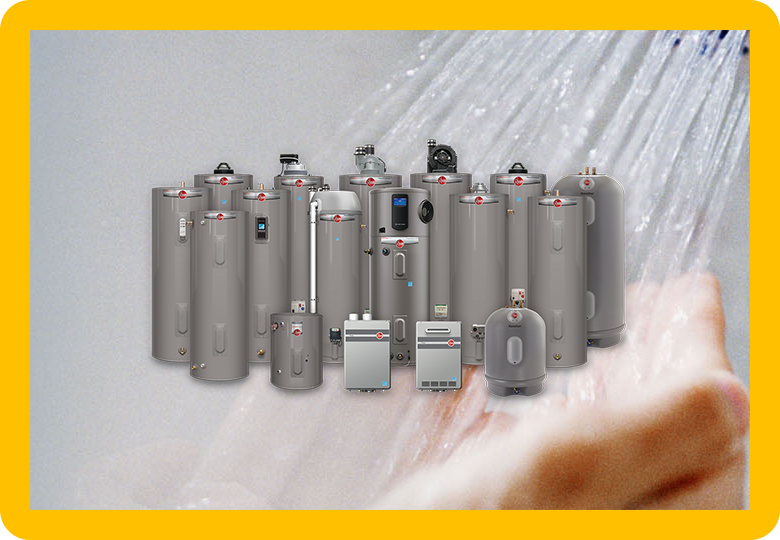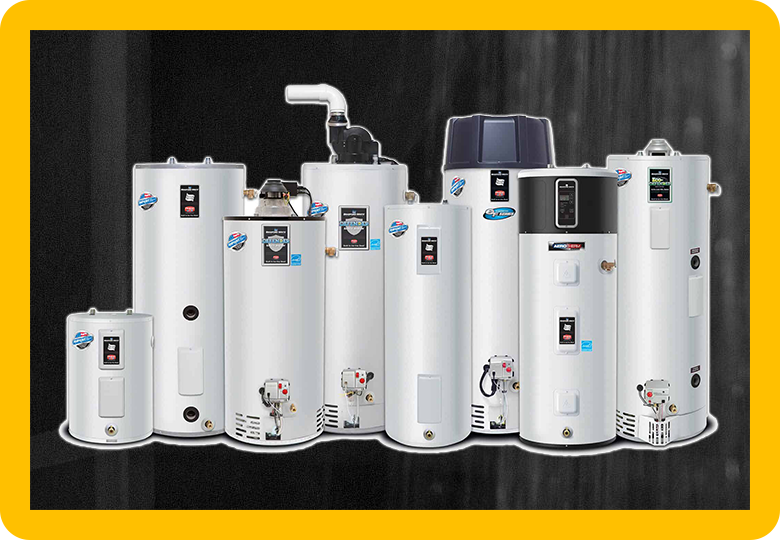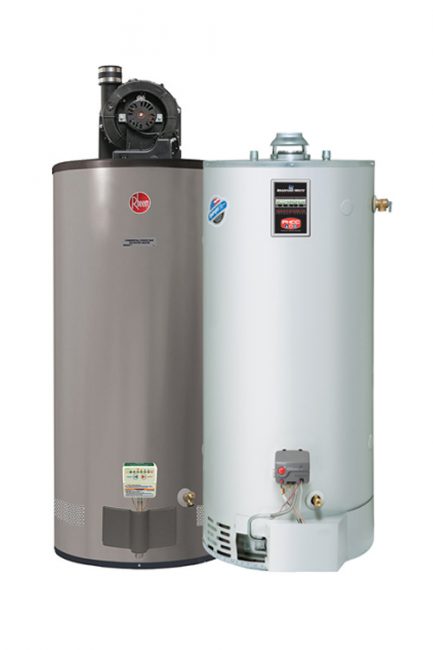What are gas fitters will do is a 13pt. hands-on inspection, cleaning, servicing, fine-tuning and complete electrical check. We back up our services with one year has written warranty; if anything breaks down or any problems occur after we have fixed/serviced the hot water tank, we will come and deal with any issues and have them resolved at no extra charge. The benefits of having your gas heating appliances serviced on an annual basis ensure savings on your gas bill, prevent breakdowns from occurring, gives confidence that your hot water tank will run safely, efficiently, and prolongs the life of the hot water tank.
Experience That Matters
We have many years of experience and can provide you with quality service you can rely on. At Royal Heating, we can get the job done correctly and offer a customer satisfaction guarantee to prove it. When you need a new water heater or simply need your hot water tank repaired, you should choose a company that you can trust. We are BBB A+ rated, so wherever you are located in Vancouver, you can rest assured knowing Royal Heating is here for you.
Repairs, Installations, or Emergencies
Your water heater is an essential but often overlooked part of your home or business. It provides a comfort that you may forget about until you lose it. This is why you should choose a water heater repair specialist you can trust. Don’t trust your water heater to just anyone. This is especially important if you are getting a new hot water tank installed. By choosing us for the installation, you know that the job was done right so you can trust it will last for years to come.
Why is the pipe on the side of my water heater ‘leaking?’
Most likely you are referring to the overflow pipe attached to the temperature relief valve on the water heater. This is a safety valve and helps relieve excess temperature and pressure inside the water heater in case of high pressure or an overheated water heater. Occasionally this pipe will “blow off a little steam” and there will be no problem with your water heater, but if it leaks frequently or continuously, there may be a problem. Call and speak with one of our water heater experts and they can help determine if you have a problem.
How can I get it faster at my kitchen or bathroom?
Waiting a long time at the faucet for hot water to arrive is usually due to the plumbing in the home. When the hot water leaves the tank of the water heater it has to travel through the piping to reach the faucet. If you have a ranch style home or a large home sometimes these “plumbing runs” can be long and it takes a while for the hot water to arrive. Re-circulation pump systems are a good solution to this problem.
Another good option can be a tankless water heater, installed at the point-of-use, such as under a bathroom cabinet at the far end of your home. Hot water is nearly immediate with a tankless water heater. Although they cost more up front than traditional tank water heaters, the energy efficiency and water savings can be substantial over time.
There is a valve that releases, drips or ‘spits’ water on occasion, is that normal?
Yes, but this is your pressure and temperature relief valve (PRV). It is typically set at 150lbs pressure or 210-degree Fahrenheit. The valve is working normally if puts out a little water when the temperature is too high, in order to release pressure, creating a safer situation. This is a safety feature required on all tank water heaters and all of them do this on occasion.
If there is constant dripping, flooding or a ‘whistling noise’, you will need to have a professional check your relief valve for failure. It can be dangerous to have the pressure build up, and it should be checked right away. A water heater that continues to overheat is also at serious risk of failure. Call us right away if your think there is too much pressure or your hot water heater is overheating and we will help you with your concerns.
At times I hear noises like ‘water dripping into a hot skillet’ coming from my water heater; do I have a problem?
A gas water heater uses approximately 10 parts of air for every part of gas to create complete combustion and with that air comes moisture. That moisture can be put into droplets as it condensates going up a cold “chimney”. In short, that sizzling noise is normal at those times when you put high demand on your water heater and particularly when the heater is in a cold environment or on a brand-new heater just fired up with a full tank of cold water. If you hear dripping constantly or see a puddle under the water heater, that could be the sign of a problem, give us a call and we can try to help determine that with you.
How long does a water heater take to fully heat up?
Generally, hot water heaters take about 45 minutes to be fully hot. If your water heater has been turned off or if you have just had a new unit installed it will take approximately 45 minutes to heat the water up. Each water heater varies in recovery depending on the gallon capacity and BTU input, but if after about 1 hour there is still no hot water then the unit is not working properly. Gas water heaters recover quicker than electric water heaters, but either way you should not have to wait more than about 1 hour for a water heater to fully heat and produce hot water.
Are drain pans under a water heater recommended?
In some locations sheet metal pans are required and in other situations they are highly recommended. You can guess the situations where water leakage could do the most damage. Water heaters located in interior closets or attics can become a nightmare. Too often we hear of a slow leak from either a pressure and temperature relief valve “popping off” or a tank failure going completely undetected until the day when someone notices hardwood flooring starting to buckle in the dining or bedroom adjacent to the small closet with the water heater. We suggest thinking twice before going without a pan drained to a safe place outside the home.
What are ways to conserve on hot water heating?
Lower water heater’s preset temperature setting-Typically preset from the manufacturer at 140 degrees, you can lower the thermostat to 120 degrees and still have comfortably hot showers. In the summertime or while on extended vacation, a setting of 110 degrees can save you money and lower your energy costs.
Replace shower heads with low flow heads. Many shower heads today come with plenty of pressure and less water usage, and you will get a long, hot shower that saves on water and money going down the drain.
Sediment flush – Some locations are notorious for mineral-rich, sedimentary water, and in these areas, flushing the water heater can extend its life and save on energy costs. Once sediment is allowed to build up and solidify it can be almost impossible to remove from residential model water heaters. The sediment is similar to coral, and makes your water heater work harder. To prevent this solidification a homeowner can flush the heater periodically, typically once a year.
Inspect regularly for leaks – leaking hot water not only does damage to the surrounding area but causes the tank to heat much more frequently.



Request a Quote:
We proudly service the following areas in the Lower Mainland: